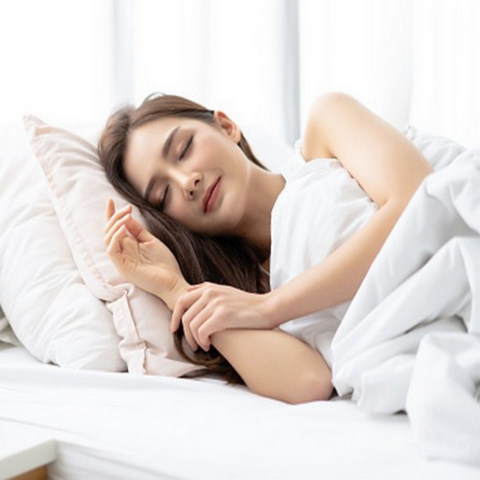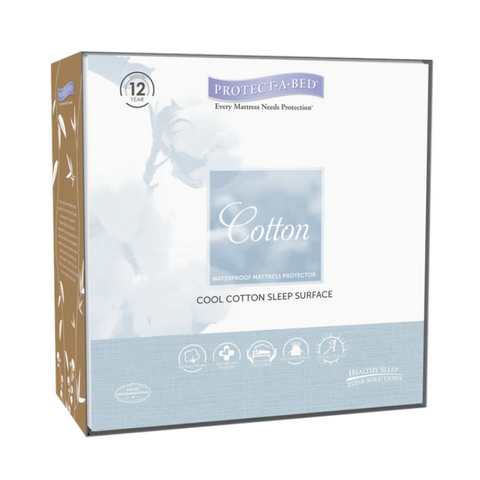1 in 4 of us suffer from hay fever in the UK, which can make snoring worse throughout peak hay fever seasons, April and May.
Why is hay fever worst at night?
Hay fever sufferers can often feel the effects worsen at night, and this is because, during the day, hot air rises and carries pollen within. When the air cools, pollen falls back down and onto surfaces that you may come into contact with that cause trigger hay fever symptoms.
If you find that your hay fever symptoms seem particularly bad at night, you may have an allergy to dust mites. This is because mite allergens can be present in your bedding, carpets or curtains, causing you to sneeze or have a blocked or runny nose when you’re trying to sleep.
Here are our top tips for coping with hayfever whilst you sleep...
1. Use an air purifier
At night, dust, pollen, and other pollutants remain. Using an air purifier at night can minimise the impact of allergies, especially in the spring and summer months.
2. Keep pets out of the bedroom
Pets may not seem like something you’d commonly link to snoring issues; however, there is a link there. Snoring may result from allergies and can be caused by flakes of skin that pets shed, which worsens respiratory problems. It’s recommended that pet owners try to keep their fur babies out of the bedroom!
3. Dust furniture and vacuum regularly
Keeping on top of cleaning in your bedroom will help to keep allergies at bay, with carpets, bedding and dust on surfaces contributing to snoring, sneezing and other reactions to air pollutants.
4. Use a dust mite resistant mattress protector
Dust mites are microscopic, insect-like pests that feed on dead human skin cells and thrive in warm, humid environments.
We recommend the
Cotton cool mattress protector which is p
rotective against stains such as spills, sweat, bodily fluids and bed wetting. Effective in preventing dust mites and bacteria from breeding inside the mattress, which are a significant cause of asthma, rhinitis and eczema.
5. Sleep with your head slightly raised
Pollen allergies can cause your nasal passages to become inflamed and swollen, making it hard for you to breathe through your nose, so people are more likely to snore. By sleeping with an elevated head, it can decrease the amount of nasal congestion that can be caused by allergies. Use an extra pillow to keep yourself propped up for a comfy night’s sleep.
We hope that our useful hayfever tips will help you to stop snoring at night, but did you also know that your pillow could be a cause of snoring as well? Make sure to sleep comfortably and safely with a
new pillow, not only relaxing but hypoallergenic as well.







